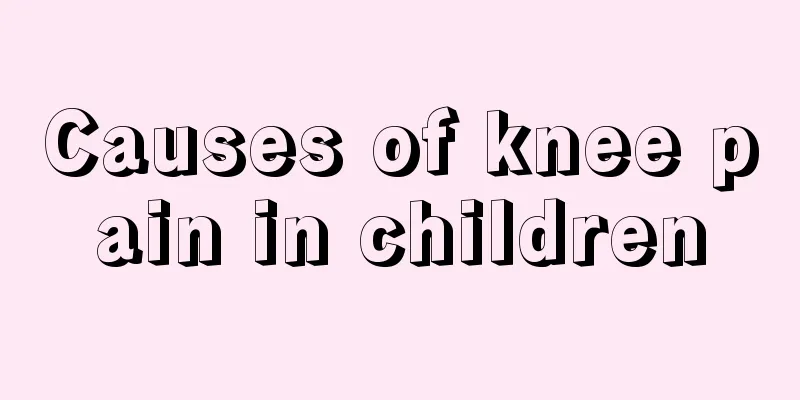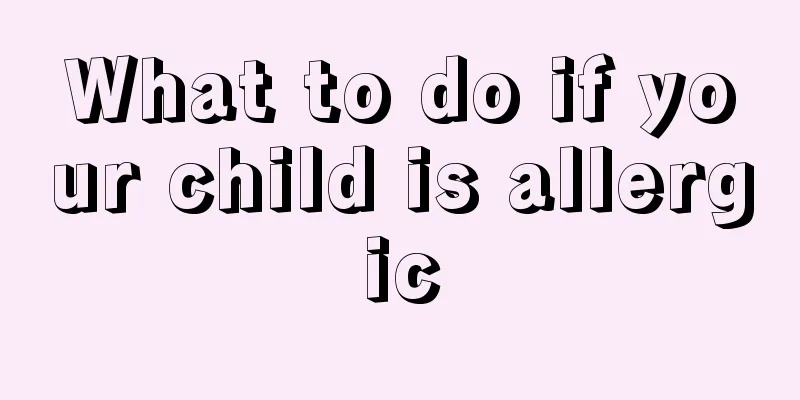What causes dizziness in children?

|
In the process of taking care of children, many parents will find that their children often have dizziness problems. Faced with this situation, parents must pay attention, because there are many reasons for children's dizziness. For example, the most common reason may be lack of sleep. If there is hypoglycemia or intracranial pressure, motion sickness, and increased intracranial pressure, etc., they will show obvious symptoms such as dizziness. (1) Insufficient sleep. It is more common in school-age children, mostly caused by heavy study burden and going to bed late and getting up early. They often complain of dizziness, loss of appetite, and lack of energy shortly after getting up. They usually do not feel a sense of objects spinning around them, nor do they experience nausea or vomiting. If you increase your sleep time, dizziness will disappear naturally. ? (2) Hypoglycemia. Mainly caused by hunger. Inadequate breakfast intake is common in childhood. The amount of food intake is often affected by getting up in the morning and rushing to school or the breakfast food is not to one's taste. If accompanied by lack of sleep at night, dizziness is more likely to occur. In more severe cases of hypoglycemia, you may feel general fatigue, cold sweats, pale face, cold hands and feet, and even coma. ?? (3) Seasickness or motion sickness . When riding in a boat or a car, dizziness may occur due to the concussion, often accompanied by pale complexion, nausea and vomiting. There is often a family history of genetic diseases. ?? (4) Increased intracranial pressure. The main symptoms are headache and vomiting. However, in the early stages of some chronic diseases with increased intracranial pressure, dizziness may occur. Some children also complain of mild headaches as discomfort in the head, and mistakenly think they are dizzy. It can be caused by concussion, intracranial tumors, and brain hypoxia due to various reasons. The headache may become more severe as the intracranial pressure gradually increases, and may be accompanied by vomiting and various neurological localization symptoms, such as visual impairment, hemiplegia, sensory impairment, etc. ?? (5) Meniere's syndrome. The main symptom is vertigo, accompanied by tinnitus or deafness. May recur. It is more common in adults and less common in children. During an attack, there is a feeling of dizziness, often accompanied by nausea and vomiting. Symptoms worsen when standing up or walking, and are more likely to occur when you are tired or sleep deprived. During an attack, one can only lie still with eyes closed. Each attack lasts for hours or days and can be relieved on its own. The cause of this disease is edema or accumulation of fluid in the inner ear labyrinth, which can be caused by autonomic nervous system dysfunction or allergic reaction. Regular horizontal nystagmus can be found during the examination. If the child is asked to turn his eyes to one side, both eyeballs can be seen shaking involuntarily. ?? |
<<: What to do if your child's front teeth are crooked
>>: What causes pain in the knee of a child?
Recommend
What should children eat for constipation? Eat this to treat constipation
It is not recommended to use medication for child...
Why do babies strain before urinating?
Sometimes the baby's health condition cannot ...
Why do young children with acute gastroenteritis only vomit but not have diarrhea?
For children, because their stomachs and intestin...
What to do if your child has a stomachache
Children often have stomachaches because they are...
What should I do if my five-month-old baby is zinc deficient?
When a baby suffers from zinc deficiency, there w...
What causes red and swollen gums in children?
The problem of red and swollen gums in children i...
What is the most accurate way to test for tuberculosis in children?
Children have relatively poor physical resistance...
What causes sweaty palms and feet in children?
Children's palms and soles sometimes sweat. T...
Can children eat snow clams?
There are many requirements for how children eat....
NICU helps babies grow
Not every child is healthy. Many babies have to b...
What are the prevention methods for myopia in teenagers?
With the changes in the social environment, acade...
How to judge whether a child has intellectual disability
If a child has intellectual disability, it will g...
What other symptoms does high back muscle tension cause in babies?
When many babies are practicing walking or when t...
How to make children's knee pads
In our lives, many babies fall while learning to ...
What to do if your child has chronic tonsillitis
Children are the hope of a family. Nowadays, ever...









